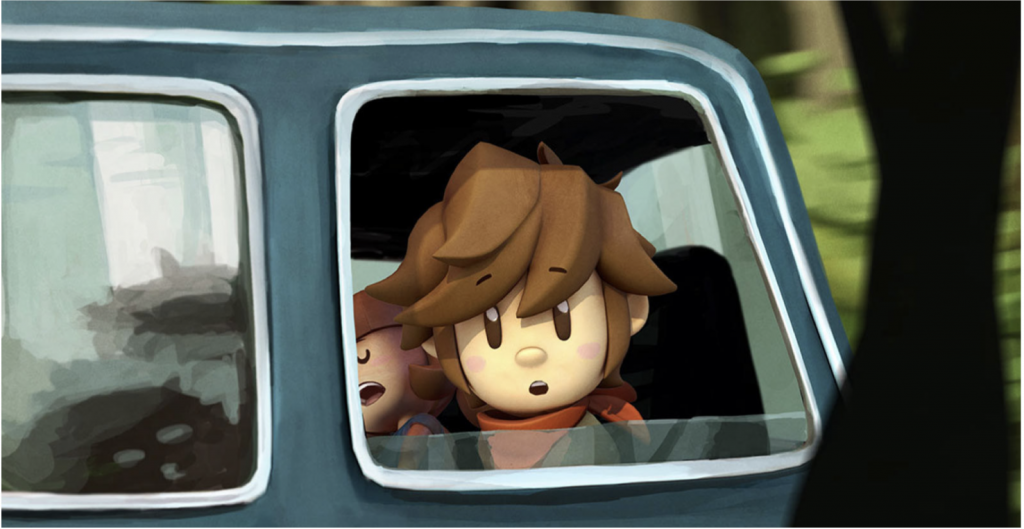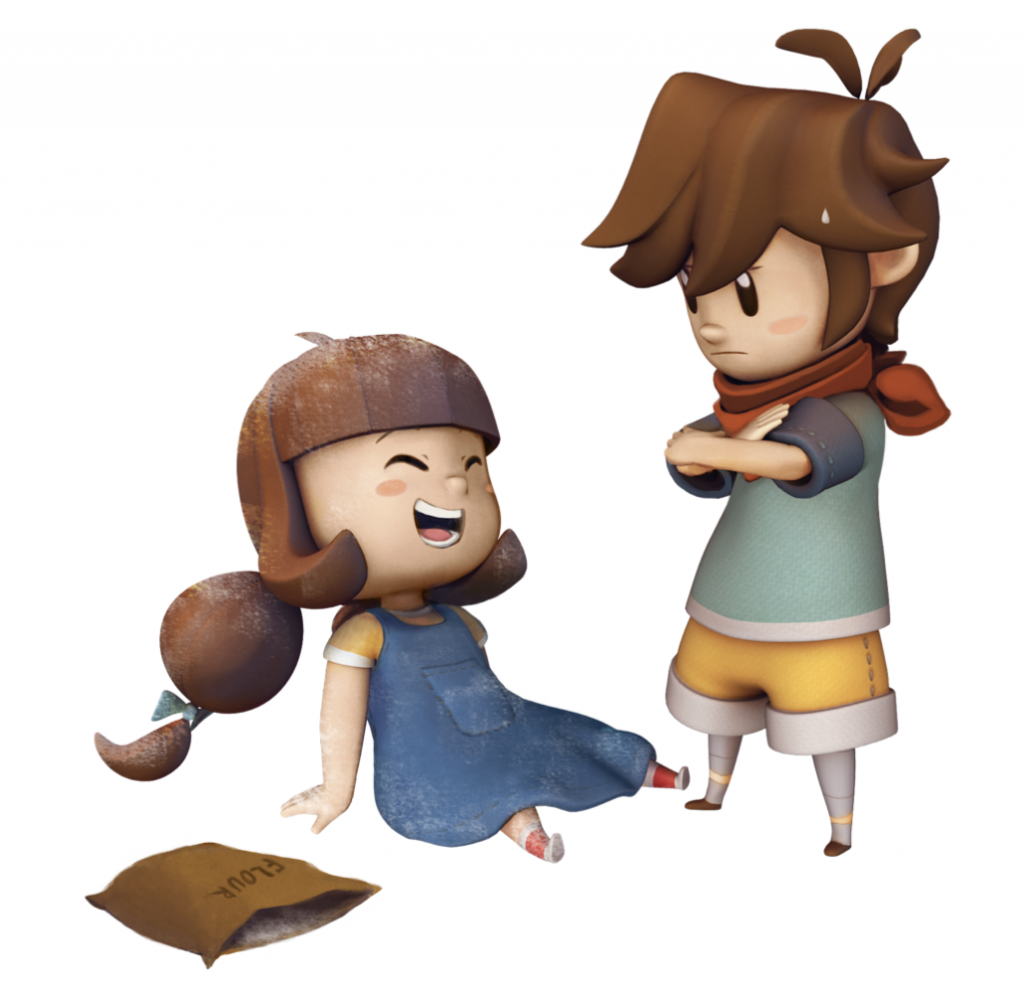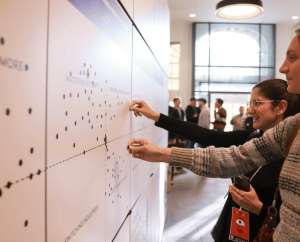Roy Husada is crispily energetic and curiously reserved. He’s unapologetically creative but also relentlessly seeks order. He is known as the socially awkward founder and managing director of Rival Schools, a creative brand localization agency. By starting this company, he bet the farm on his lifelong, unyielding passion for connecting people and ideas through creativity. He believes that exercising creativity is everyone’s god-given right and practicing it should be fun and inclusive.
His career started back during the dot-com era. His core experience comes from all forms of digital media and interactive design. He believes that adopting design thinking is the key to success — a philosophy that has served him well in his career as a Creative Art Director for some of the most amazing brands in the world.
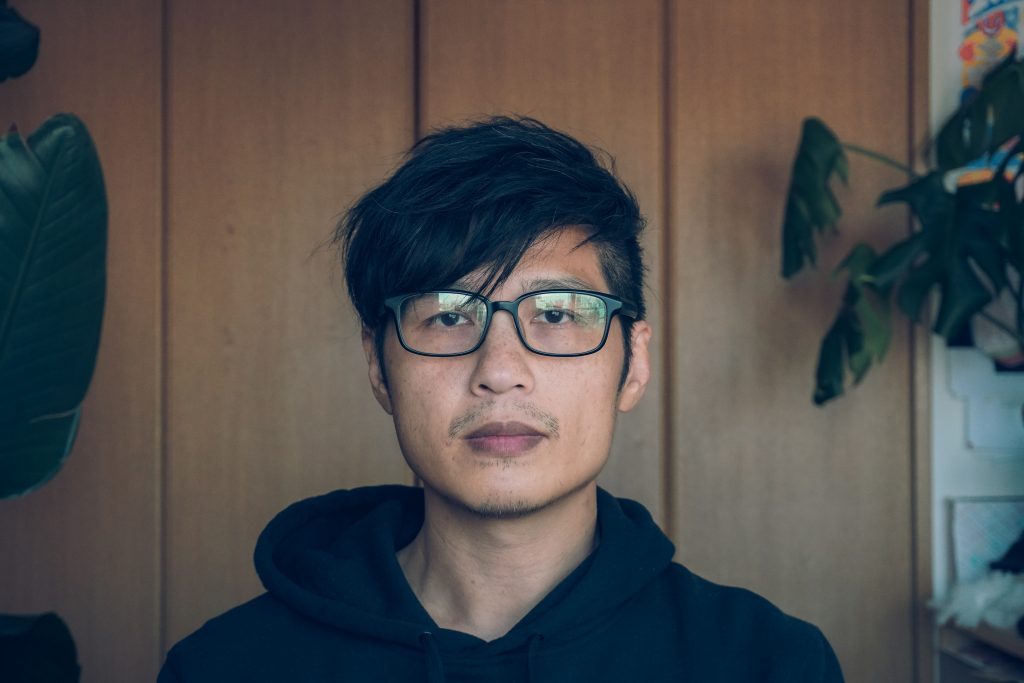
Roy gave a talk (watch it here) at Design Matters Tokyo 22 (May 14–15, 2022), a design conference based in Tokyo, established in 2020 with the goal of sharing knowledge, offering inspiration to creatives who share the same passion for design, and connecting designers from all over the world. The belief behind the Design Matters conferences is that connecting cultures and sharing experiences have the potential to foster brilliant ideas. This is why at our conferences, designers are always encouraged to talk about their processes, challenges, ideas, and fuck-ups too!
In his talk at Design Matters Tokyo 22, Roy touched upon a series of topics, such as:
• The struggle of finding something you are good at from a very young age
• Growing up with strict parents who don’t necessarily get your passion or the career potential of your interests
• The pressure to conform and perform in an Asian household vs personal aspirations
• Academic success not necessarily being a marker for economic success
• The fact that it’s never too late to change your life/career, but this requires taking risks
Paraphrasing Roy, ‘his parents were not as strict as other Asian parents, but they definitely did not understand what he was into. They still don’t really understand’. How many times have we confused our parents, and even more our grandparents, when we tell them how much we love playing D&D or try to explain our job?
Many of us can also relate to the sense of confusion and anxiety we felt when we were asked as kids, “what are you going to do after school?”. And today too, there are many kids out there as young as 10 or 15, who have no idea what they will be once they’ve grown up.
There are also people who need to go through a series of failures in life before they can find their path and finally thrive. Talks like Roy’s are definitely a type of representation we need to see more of.
What’s your take on success and failure?
RH: I think the tricky part here is that we actually don’t have a widely understood image of what success is. If that is the case, can we actually know what failure is? I feel like we just feel the negativity of ‘failure’ without knowing what we’re actually trying to achieve.
Let’s look into the parents-son relationship and all the set of expectations that come with growing up Asian.
Roy’s talk in a way reminded me of the recent Pixar movie Turning Red, which tackles the topic of growing up Asian in the West. The animated film is about Mei, a 13-year-old Chinese-Canadian girl who is cursed with turning into a red panda any time she has a strong emotion. Mei grows up in Toronto and struggles with the strict and traditional expectations of her Chinese mother, who spies on her in school, makes sure she has straight A’s, stays proper and conforms to other elements of Asian culture and expectations.
Have you seen Turning Red?
RH: I haven’t watched it yet! It’s on my list though!
In the animated film, Mei’s mother, Ming, is voiced by Sandra Oh, who once said in an interview: “What I hope this film opens up is a conversation for those in the Asian community. When you’re a young person, you’re going to disappoint your parents”. This is something that you mentioned in your talk as well. But the point is growing up and finding your identity, not growing apart from your family, right?
RH: There is definitely an aspect of wanting to keep close to my family. My family is really close. We’ve got each other’s back for sure. There were several moments growing up where I had to chip at them little by little. Eventually, they just wanted me to grow up without the struggles they faced. I’m sure that is also common in Asian families. They’re strict because they have love for their kids. I guess, being a parent is hard no matter what, as I have my own teenager to deal with now!
What is your personal experience?
RH: My parents were kind of strict, but definitely not as strict as other Asian parents. However, because I had a lot of other Asian friends growing up, I had first-hand experience of all kinds of Asian parents. My best friend’s dad had expected that his son would get a Ph.D. at a top University. And constantly signaling that he would be worthless if he couldn’t achieve that as a minimum.
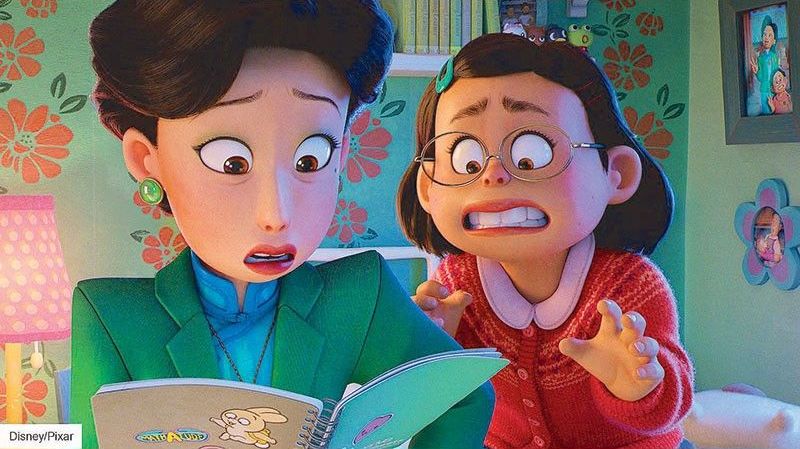
Academic success ≠ life success
Other topics Roy touched upon in his talk are the fact that academic success is not necessarily equal to economic success in life, and that failure can be the catalyst of change in one’s life/career — even though that requires taking risks.
What are your thoughts on this?
RH: All my closest friends had very proud parents when their kids got top marks and got into the best universities. However, those Master’s degrees were not the surefire way to a successful career or life, so it seemed. I think a better way to look at it is that even without a Master’s degree, you can achieve incredible things and succeed without it.
From Roy’s talk:
“I let the voice of failure make me blind to everything else in life”
“Thinking about success or failure can really weigh down on us. It can push us to making the wrong decisions and forgetting about the priorities in life”
Roy Husada

What do you consider priorities in life?
RH: The boring but true answer is: my family. The more interesting and truer answer is: to satisfy my curiosity. That includes things like, can I make a creative company that fosters incredible creativity and a playful culture out of thin air? Can I make my own unique soap product? Can I move to a completely foreign country and stand on my 2 feet?
Maybe failure doesn’t matter too much, in the grand scheme of things
Jack Ma’s life is perhaps the greatest example of success through failure. He failed primary school twice and middle school three times. He also failed his University entry exam three times. He was rejected even by KFC. He applied to Harvard ten times and was rejected each and every time. But now, he is one of the richest people in the world as the founder of Alibaba, one of the biggest e-commerce companies on the planet.
Even though this is an extreme case, we can all relate in our own little ways that sometimes a pretty big failure (or many) can really turn our life around.
“The fear of failure maybe doesn’t matter so much, if I have the mental space to have fun. If you’re having fun at least you’re paying attention to life”
Roy Husada
Anything you want to add?
RH: I said this in my presentation, but if you’re going to fail and not have fun, that just plain sucks. If you’re going to fail, don’t forget to have fun while you’re at it.
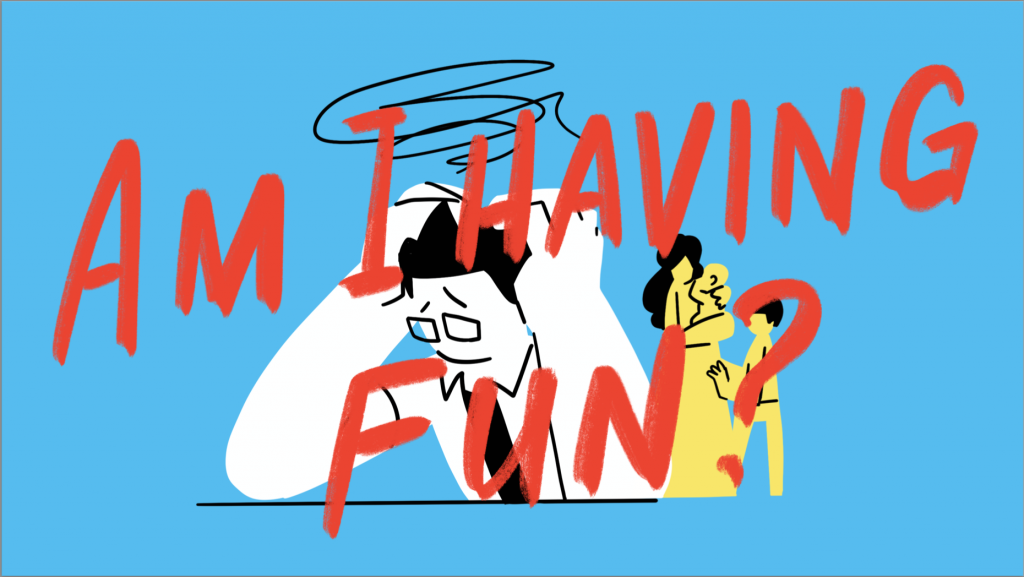
Speaking of fun, what do you do at Rival Schools? Can you show us any of your projects?
RH: Most of my recent work is under confidentiality agreements, unfortunately, but I’m happy to show some of my personal projects.
2020 Survival Kit.
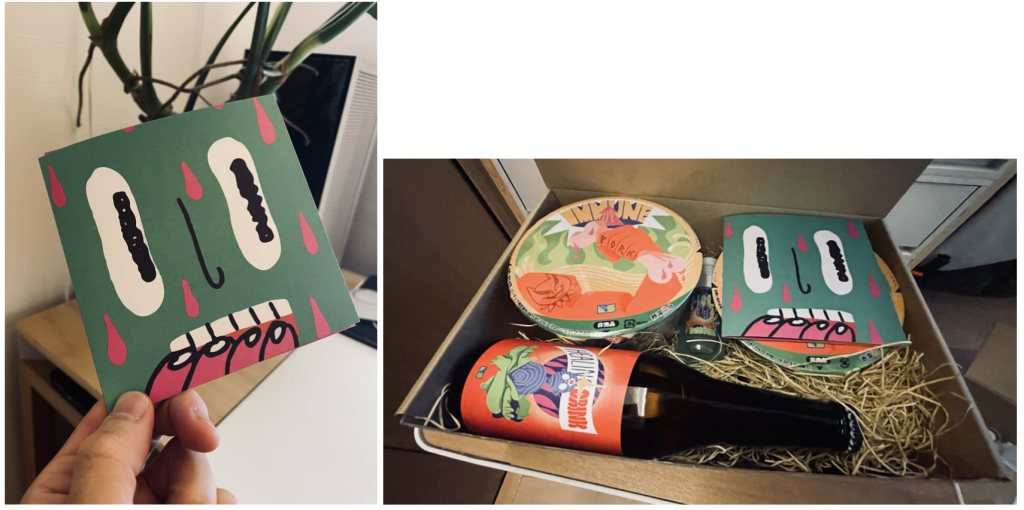

RH: This was a small little project we created that included craft beer, instant ramen, and hand sanitizer. We sent this out to our friends and partners during the pandemic to just let them know we care. All of the products were sourced domestically and we had a lot of fun coming up with the label designs. I worked with one of my talented designers to put this together.
Team Profile Illustrations

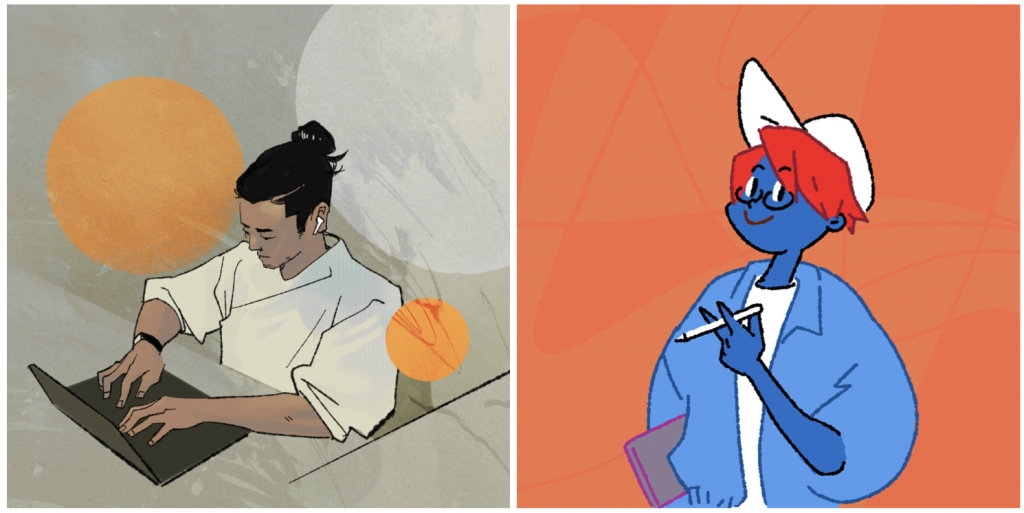
RH: During the pandemic, we couldn’t meet but I wanted to show people how much I appreciate them so I illustrated their portrait for their birthday. The reality though is I just wanted an excuse to try drawing in different styles!
Brambleberry Tales
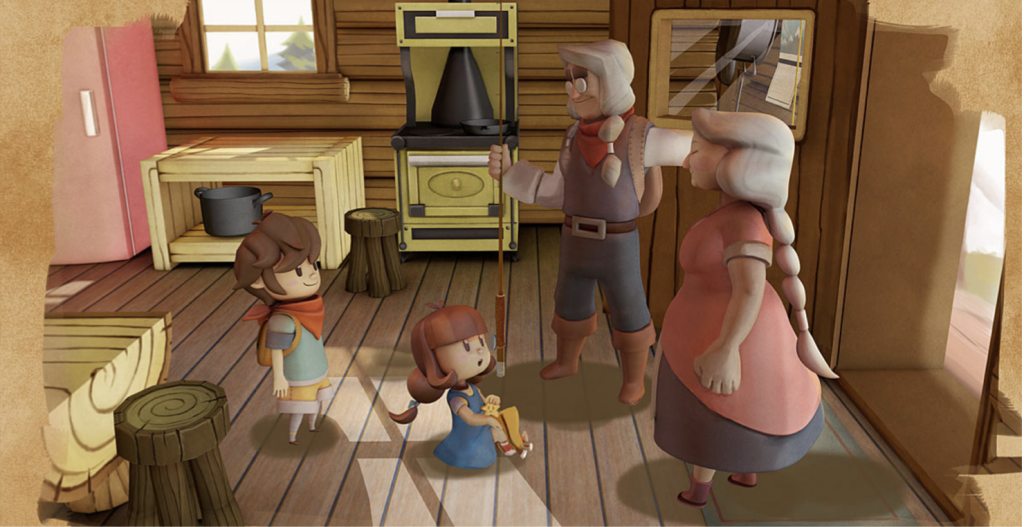
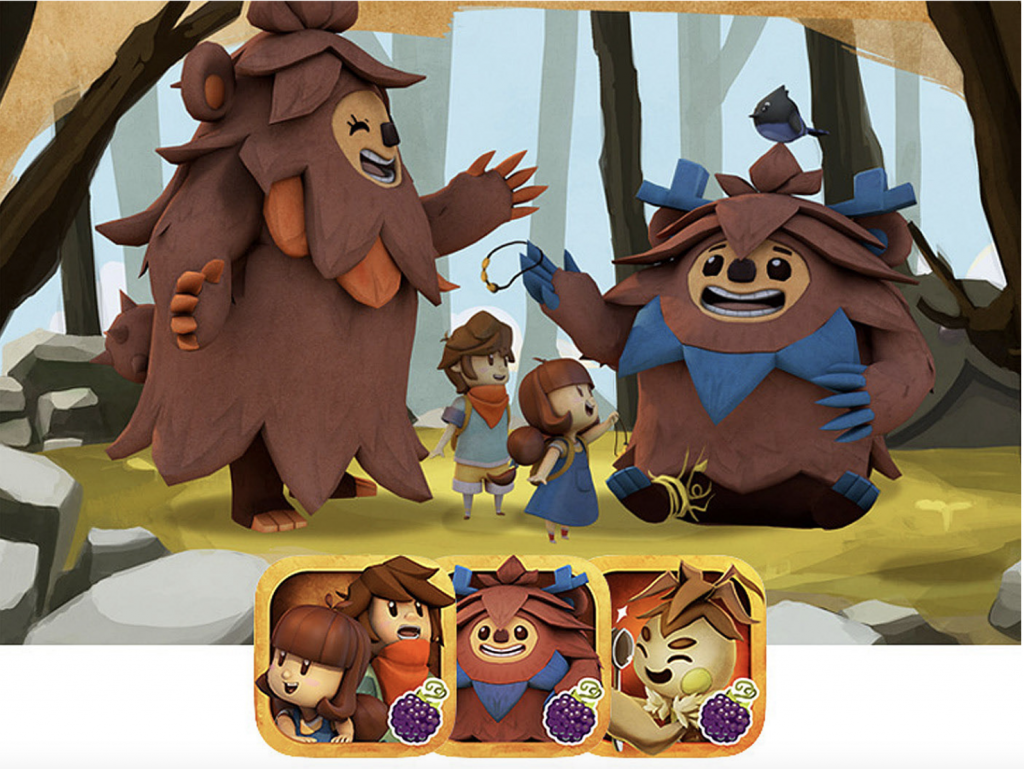
RH: I actually talked about this project in my talk, but this is the kids’ storybook app that ultimately didn’t go anywhere. I’m still proud of it though. It took several years of my life to get this done. This project actually started while I was still living in Canada. The story originates from the aboriginal people of British Columbia.
Interested in discovering more about Roy and Rival Schools? You can follow him and his work on Behance, Instagram, Twitter, or you can visit rivalschools.jp and his personal website soulbomber.com.
Would you like to watch Roy Husada’s talk? Subscribe to the platform Design Matters +, and watch Roy’s talk, together with more than 200 other talks from all the previous Design Matters events. On the same platform, you get first access to all the best content from the Design Matters events and community, as well as design book offers and discounts on the upcoming conferences.



